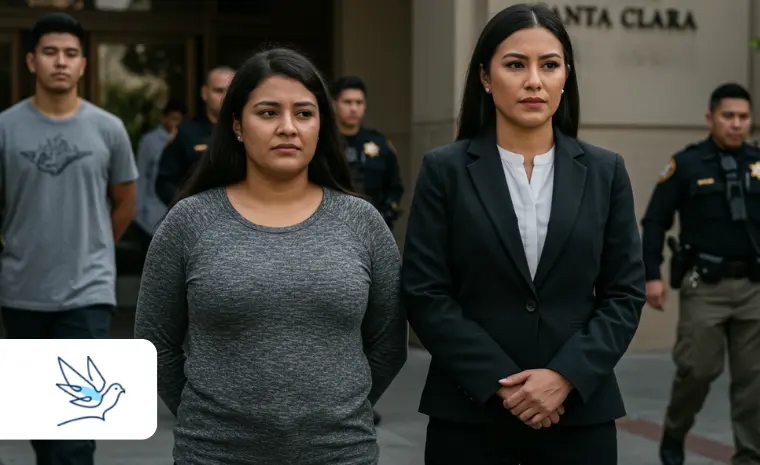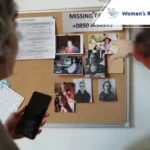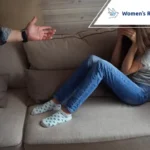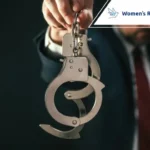Summary
Human trafficking in Santa Clara is a growing concern, with cases involving forced labor, sexual exploitation, and domestic servitude. This blog highlights six critical behavior signs to watch for, explains the role of local law enforcement agencies and legal support, and offers resources for trafficking prevention and victim protection.
Table of Contents
Walking down El Camino Real or near Levi’s Stadium, it may be hard to imagine the hidden crisis of human trafficking in Santa Clara. Yet, Human trafficking cases continue to rise across the United States, affecting vulnerable individuals in devastating ways.
From sex trafficking to labor trafficking, this form of modern-day slavery thrives in silence. Recognizing the warning signs is the first step to stopping it. In this blog, we will explore common behavior signs, legal protections, and where survivors can find support in Santa Clara.
What Is Human Trafficking?

Human trafficking occurs when individuals are exploited through force, fraud, or coercion. It can involve:
- Sexual exploitation, such as prostitution or pornography
- Forced labor in industries like agriculture, hospitality, or construction
- Domestic servitude, where individuals are abused within households
Human trafficking affected an estimated 27.6 million people worldwide in 2021. The majority faced forced labor, with the rest experiencing commercial sexual exploitation. In Santa Clara, awareness of these realities is critical to strengthening trafficking prevention and protecting vulnerable members of the community.
6 Signs of Human Trafficking in Santa Clara
1. Restricted Movement
Trafficking victims are often closely monitored and may be unable to leave their workplace or living space without supervision. Activities like attending school, visiting friends, or seeking medical care are tightly controlled.
2. Signs of Abuse
Unexplained injuries, frequent need for medical treatment, or visible signs of neglect may point to mistreatment. In some cases, victims may attempt to hide these injuries out of fear of retaliation.
3. Inability to Speak Freely
Victims may avoid eye contact, hesitate before responding, or appear as though someone is controlling what they can say. Their communication may feel rehearsed, guarded, or overshadowed by fear.
4. Lack of Personal Possessions
A common indicator is the lack of access to identification, financial resources, or personal belongings. Victims might depend completely on others for transportation, communication, or even essential needs.
5. Working in Unsafe Conditions
Victims may be forced to work long hours in unsafe environments with little to no pay. In Santa Clara, this can sometimes include child trafficking in small businesses or labor trafficking in agriculture, restaurants, or construction.
6. Behavioral Signs of Trauma
Emotional distress can show in different ways—victims may seem unusually submissive, fearful, withdrawn, or highly anxious. These behavioral signs often reflect deep psychological control and trauma.
How the Law Safeguards Survivors of Human Trafficking
Human trafficking in Santa Clara violates fundamental human rights. Under both federal and California law, victims are guaranteed protections, services, and access to legal representation. The Trafficking Victims Protection Act (TVPA) offers key avenues for relief, while state initiatives provide survivors in Santa Clara with shelter, counseling, and medical treatment.
Local efforts, such as the Santa Clara County Human Trafficking Task Force, highlight the importance of coordination between law enforcement, advocacy organizations, and community programs. Survivors may also seek legal representation through a human trafficking attorney to file claims, pursue compensation, and secure immigration protections where applicable.
Where Victims Can Seek Help in Santa Clara
Santa Clara County offers multiple resources for victims:
- Human Trafficking Task Force – Collaborative network of law enforcement, nonprofits, and victim services.
- Human Trafficking Hotline: 1-888-373-7888 – A 24/7 confidential resource.
- Local Shelters and Advocacy Centers – Provide immediate housing and support.
- Human Trafficking Attorneys – Help survivors access legal remedies, compensation, and safety protections.
Steps to Take if You Suspect Trafficking
If you believe someone may be a victim of human trafficking, it’s important to act carefully and safely:
- Do not approach traffickers directly. Confronting them could put both you and the victim at greater risk.
- Call the Human Trafficking Hotline (1-888-373-7888). Trained advocates are available 24/7 to take confidential reports and connect victims to resources.
- Notify local law enforcement agencies. In Santa Clara, you can also request to speak with officers collaborating with the Human Trafficking Task Force.
- Document observations if possible. Note dates, locations, license plates, or other details without putting yourself in danger.
- Reach out to local advocacy groups. Community organizations in Santa Clara can provide immediate assistance, shelter, and support for human trafficking victims.
Taking these steps could save a life and prevent further exploitation.
FAQs
What role does a human trafficking attorney play in supporting victims?
A human trafficking attorney guides survivors through the legal process, ensuring their rights are protected at every step. They can help victims pursue compensation, access eligible immigration relief, and connect with resources for safety and recovery.
Is trafficking prevention possible?
Yes. Awareness campaigns, stronger community engagement, and reporting suspicious activities near Santa Clara landmarks like the SAP Center can reduce risks.
Who qualifies as a human trafficking victim under U.S. law?
Any individual coerced into forced labor, sexual exploitation, or child trafficking, regardless of immigration status.
Compassion, Legal Support, and a Path Forward
Human trafficking in Santa Clara is a serious crisis that requires community awareness, legal action, and compassionate support. Survivors deserve protection, justice, and the chance to rebuild their lives free from modern-day slavery.
If you or someone you know is affected, contact a human trafficking attorney for confidential legal representation. Call us today for a free consultation and let us help you access the resources, medical treatment, and justice you deserve.






